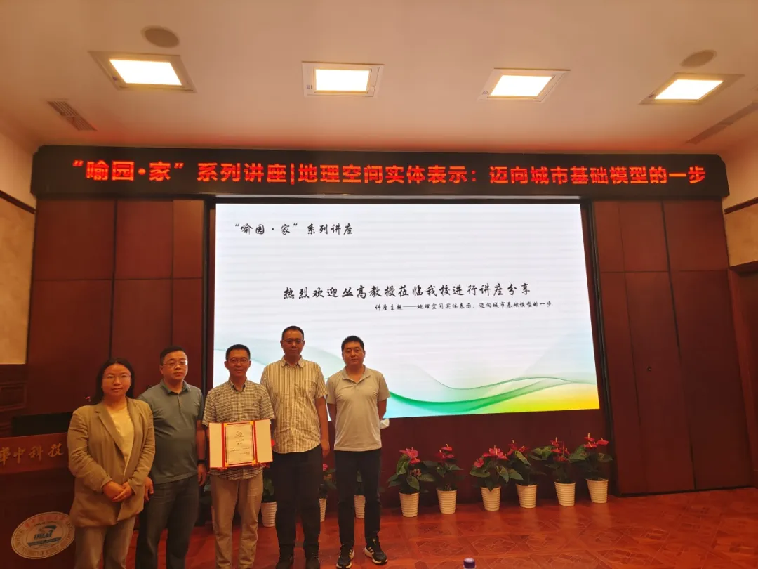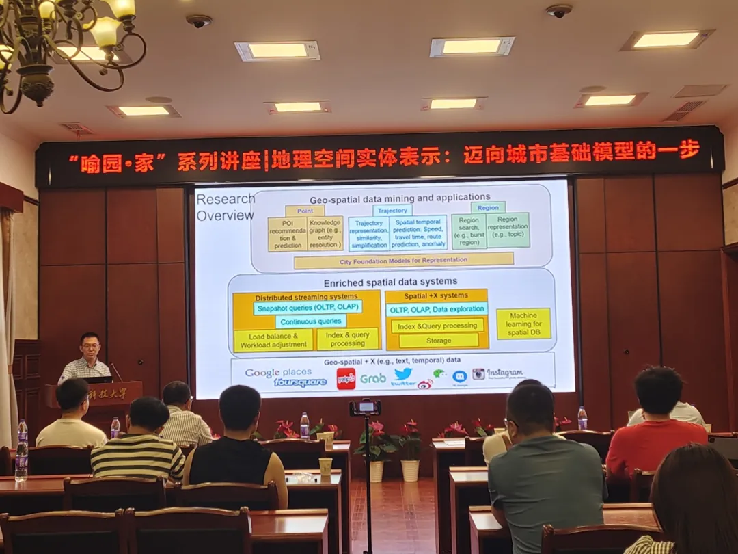On the morning of June 3, the "Yuyuan Home" lecture series;Seminar on Geospatial Entity Representation, jointly organized by the School of Computer Science and Technology, and the Office of International Affairs, was successfully held at the Wutongyu Mingyi Building. Professor Cong Gao from Nanyang Technological University (NTU) in Singapore, who is also the co-director of the Singtel Cognitive and Artificial Intelligence Lab for Enterprises NTU, delivered an insightful academic lecture titled "Geospatial Entity Representation: A Step Toward the City Foundation Model" to the attending faculty and students.
On behalf of the organizers, Professor Wei Wei from the School of Computer Science and Technology extended a warm welcome to Professor Cong Gao, introducing his research fields and achievements. He expressed hope that the lecture would benefit the attendees through academic exchange, fostering collaboration, reflection, and learning.

Professor Cong Gao began by summarizing his team's recent research efforts, then provided a detailed discussion on geospatial entity representation issues, covering the representation of point objects, trajectories, regions, and their applications. Examples included keyword searches based on spatial relationships, point-of-interest recommendations, speed inference, and regional population estimation. He also presented detailed case studies, analyzing the current foundational models for geospatial applications and exploring trends toward a city foundation model. The focus was primarily on enhancing query and analysis capabilities for geospatial entities through learned representations and applying self-supervised learning methods in geospatial contexts. Toward the end of his talk, Professor Cong discussed his team's recent work on improving spatial awareness in large models and explored potential research directions in combining large models with spatio-temporal geographic information.

After the lecture, a lively discussion ensued among the faculty and students, including participants from the School of Computer Science and Technology, and the School of Architecture and Urban Planning. They explored topics such as the computational resources required for research, the integration of geographic information with recommendation systems, and other related issues, further deepening their understanding of the seminar content.
Professor Cong Gao has previously worked at Aalborg University in Denmark, Microsoft Research Asia, and the University of Edinburgh. His current research interests include ML4DB (Machine Learning for Databases), spatial data management, spatiotemporal data mining, and recommendation systems. His research papers were recognized as runner-up for Best Paper at WSDM 2020 and 2022. His Google Scholar citations have reached 18,000, with an H-index of 71. Professor Cong has held notable roles such as PC Co-chair for ICDE 2022, Vice Chair for KDD 2021, PC Co-chair for VLDB 2014 E&A track, and PC Vice Chair for ICDE 2018. He has also served as an associate editor for ACM Transactions on Database Systems (TODS) and Vice Chair of the Singapore chapter of ACM KDD.
